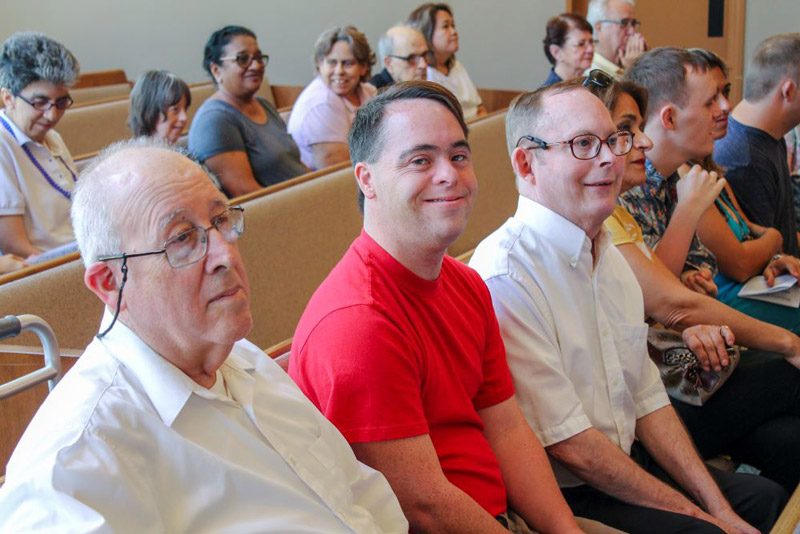People with intellectual and developmental disabilities want to feel that they belong, just like the rest of us. It’s a basic human desire. We all desire community and fellowship, social interaction and acceptance. Unfortunately, the reality is that many people with disabilities struggle throughout their lives to find that basic sense of community and belonging.
At AbleLight, many of the people we support tell us they first felt that sense of belonging and acceptance in their church. In fact, 84% of people with intellectual disabilities say that their faith is important to them. But how does a faith journey start for someone with a disability? How do you start a conversation about church with someone who may have never heard the word?
Starting the conversation
Sandra Rice, Director of Religious Resource Creation, says there is no cookie cutter way to start a conversation about faith with someone who has a disability. “This is a hard question because most of the time this discussion is based on the situation at hand,” says Sandra. “Generally, when I discover someone has no faith in Jesus I talk to them about their lives. I ask about their hopes and dreams and about issues they may be struggling with. I work on building a relationship and showing people they matter.” But this is only the first step. The process of discovering faith and a desire to explore it takes time, as Sandra explains. “While you are praying and waiting on God’s timing, build a relationship with that person that matters. Help them see God’s love in action.”
Fostering an inclusive church community
For people with disabilities who express a desire to explore their faith, the first thing to do is find a church home for that person. Unfortunately, it is often difficult for churches to fully include people with disabilities. This is not to say that congregations do not welcome people of all abilities with open arms, only that many churches simply do not have the resources to minister to people with disabilities. However, there are simple steps that church members can take to ensure people with disabilities feel included and valued, and it all starts with a simple “hello.”
“Young adults, like all people, need to feel as if they belong to a faith community,” says Sandra, “For example, on the days they don’t show up for worship or an event, they need to know they were missed. They need solid, true, reliable, concerned, loving relationships.”
When congregations open their doors to people with intellectual and developmental disabilities, they create diversity and incredible opportunities within their faith communities. New perspectives, gifts and talents can only strengthen the foundation of the church.
If you would like to learn more about how to start a disability ministry in your congregation, contact an AbleLight Ministry Consultant who will take your congregation from where they are to where they want to be.

